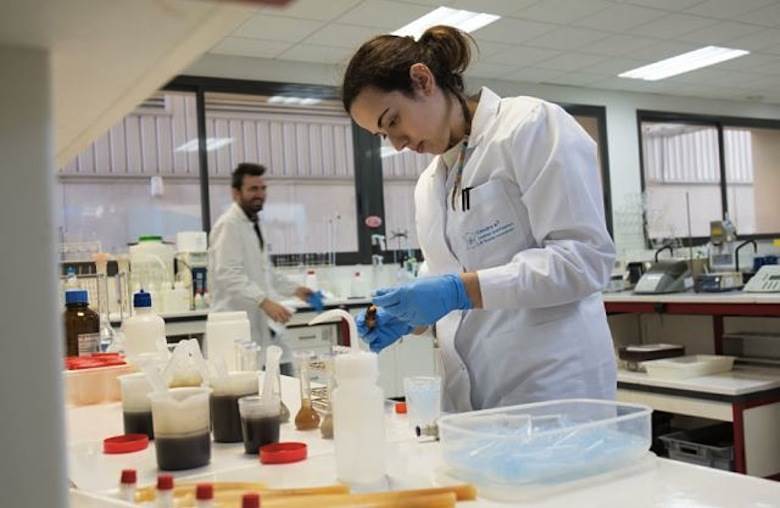Igualada team patents new veg-tan process using grape seed
29/06/2018

Grapes are abundant locally because Spain is the world’s second-largest producer of wine (after Italy) with 15.3% of the world’s total. Pips from crushed grapes have long been used there to make orujo, which is a clear spirit similar to grappa or eau de vie. At the end of orujo production, the seeds can be crushed to make the oil that forms the basis of the new vegetable tanning process.
EEI director, Anna Bacardit, has explained that what the team set out to do was design a sustainable “kilometre-zero” product, which means using local materials to make leather rather than import vegetable-based tanning agents from Latin America or Africa. The team has described the process as zero-waste because any residues from the treatment can go back into the ground to nourish the soil.
In comments to local media, she said the leather produced during trials of the product have been comparable to leather made using conventional tanning methods. She also pointed to a possible advantage of the grape seed tanning method, which is that samples have shown a higher than usual level of light-fastness.
Local media also quoted Jaume Valls, managing director of Igualada-based veg-tan leather manufacturer Miret i Cia as saying this could be an important development. He pointed out that demand for veg-tanned leather articles is strong and that their price has increased by around 20% in the last two years.
But he said that caused him some concern about supply of tanning materials, traditionally from trees such as tara, mimosa or quebracho. “It could become a problem for us to secure the supplies we need, or the price of the materials could go very high,” he said.











